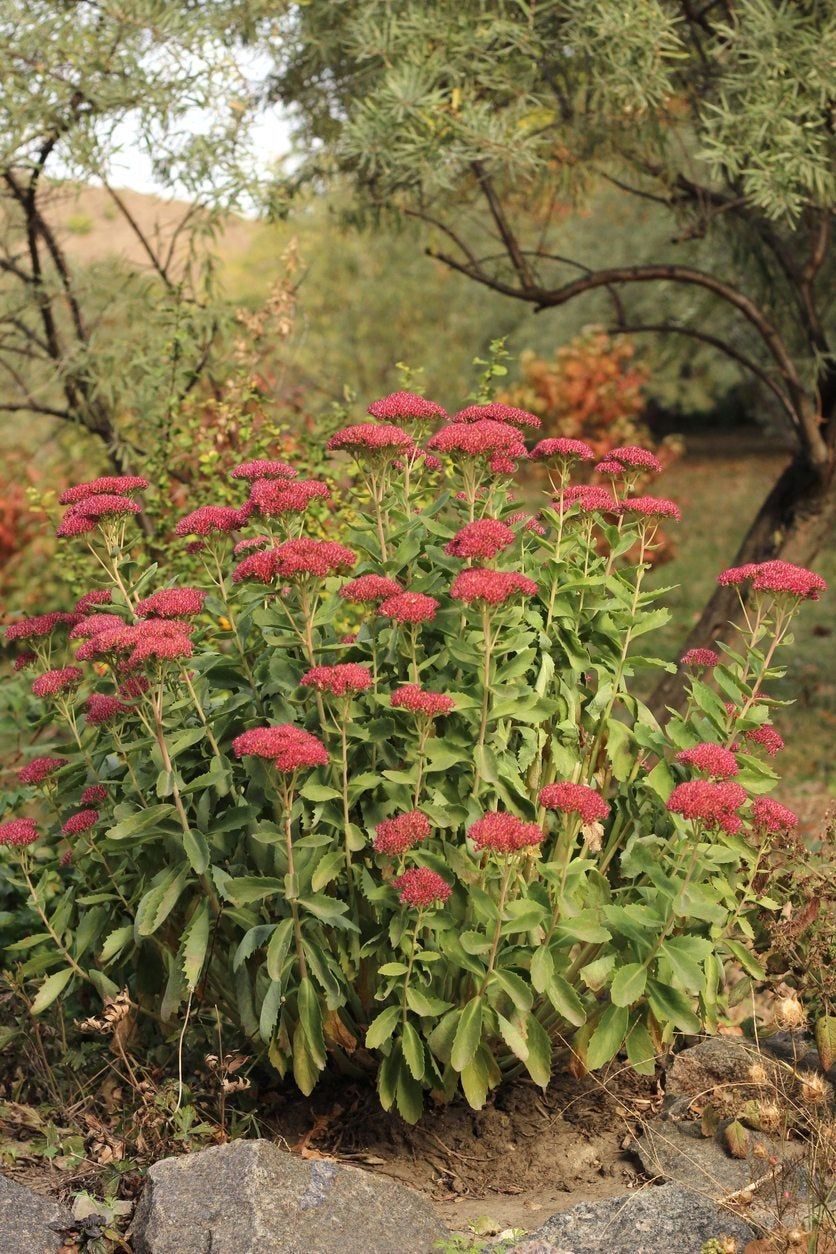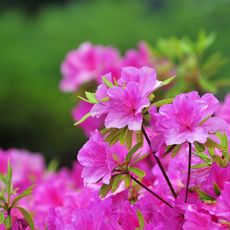Autumn Joy Sedum Variety – Learn How To Grow Autumn Joy Plants


One of the more versatile and architecturally appealing sedums is Autumn Joy. The Autumn Joy sedum variety has numerous seasons of appeal, starting with its sweet rosettes of new growth in late winter to early spring. The flower is also persistent, often lasting well into winter, providing a unique landscape. This is an easy plant to grow and divide. Growing Autumn Joy sedums will enhance the garden while bestowing you with plenty more of these amazing plants over time.
About Autumn Joy Sedum Plants
Sedum Autumn Joy plants (Sedum x 'Autumn Joy') are not garden divas. They thrive in conditions that other plants might consider rude. Once established, they are drought tolerant, but they also flourish in rainy regions. The key is well-draining soil and plenty of sunshine. Provide these circumstances and your plant will not only bloom and grow quickly but can be separated to produce many more of these un-fussy beauties. The Autumn Joy sedum variety is a cross between S. spectabile and S. telephium and hardy in United States Department of Agriculture zones 3 to 10. You may find the plant under various names for this reason. Hylotelephium telephium 'Autumn Joy' or Sedum spectabile 'Autumn Joy' or even Hylotelephium 'Herbstfreude.' The succulent leaves emerge early as rosettes and march up stems that develop soon after. In summer, pink puffs of flower clusters adorn the tops of the stems. These are especially attractive to bees and butterflies, but an occasional hummingbird may also investigate them. As the flowers become spent, the whole head becomes dried and tan but retains its form, adding an interesting touch to the fall garden. The plants attain a height of 1 ½ feet (46 cm.) with a 2 foot (61 cm.) spread.
How to Grow Autumn Joy
These plants are readily available at most nurseries and big box stores. Their popularity ensures a consistent supply. You can enhance your stock of this fun plant by dividing it in early spring or by stem cuttings. It can also grow from fleshy stems harvested in the fall and placed horizontally in a soilless medium in a sunny location of the home. In just a month or so, each leaf node will develop tiny roots. Each of these may be removed and planted for individual new plants. The plants have few pests or disease issues but may occasionally be browsed by deer. You may also try growing Autumn Joy sedums indoors or in containers. Their long-lasting flowers will decorate any area for up to eight weeks with rusty pink blooms. Sedum Autumn Joy plants are often one of the few nectar producing flowers in late summer, feeding bees and other insects. You can eat the plant too! Young, tender stems and leaves can be eaten raw, but the older material should be avoided as moderate stomach upset can occur unless cooked. These hardy plants are members of the Stonecrop family. The sap in the thick leaves is useful in alleviating inflammation or as a cooling salve on burns and rashes. With its medicinal attributes, long flower life, and ease of care, Autumn Joy is truly a joy of a plant and one you should add to your perennial flower garden.
Gardening tips, videos, info and more delivered right to your inbox!
Sign up for the Gardening Know How newsletter today and receive a free copy of our e-book "How to Grow Delicious Tomatoes".

Bonnie Grant is a professional landscaper with a Certification in Urban Gardening. She has been gardening and writing for 15 years. A former professional chef, she has a passion for edible landscaping.
-
 Ideal Azalea Water Requirements – For Lush, Healthy Shrubs That Will Thrive For Years
Ideal Azalea Water Requirements – For Lush, Healthy Shrubs That Will Thrive For YearsWhat are an azalea's water requirements? Learn how to keep these beautiful spring-blooming shrubs happy and healthy in your yard or container garden.
By Amy Grant
-
 7 Vegetables To Plant In April: Start Indoors Or Outside For A Bumper Summer Harvest
7 Vegetables To Plant In April: Start Indoors Or Outside For A Bumper Summer HarvestAchieve your growing ambitions with these best vegetables to plant in April – including cold-hardy crops to sow direct and tender varieties to start indoors
By Mary Ellen Ellis